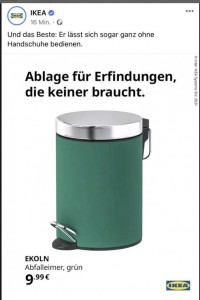Warum Newsjacking Teil jeder guten PR-Strategie sein sollte
Successful PR should always keep an eye on current events. We talk about newsjacking when companies link their own messages to current news so skillfully that they get into the media. But successfully “hijacking” news coverage with your own content is an art. Nevertheless, real-time PR should be part of any good PR strategy, according to Fabian Zeitler, Senior Communications Director at PIABO.

When the Höhle der Löwen (the German version of Shark Tank) start-up Pinky Gloves recently faced a full-blown shitstorm (not entirely unjustifiably, by the way), IKEA scored points on Twitter and Facebook with a simple picture of a trash can and the headline “Storage for inventions that no one needs”. This was shared thousands of times, numerous media outlets picked up on the action – a marketing coup for the Swedish furnishing giant. The principle behind it is called newsjacking and was first coined by David Meerman Scott in his book “Newsjacking: How to Inject Your Ideas into Breaking News Story and Generate Tons of Media Coverage.” Simply said, it involves companies taking current news coverage and “hijacking” it for their own purposes. IKEA did this cleverly via its own social media channels and killed two birds with one stone: The furniture store presented itself as a value-based, contemporary company using the underlying subtext (“The idea is crap.”) and at the same time promoted one of its own products (the trash can).
Newsjacking in PR: What to keep in mind
So much for visual newsjacking via social networks. However, real-time PR can also be an important tool in traditional media work to set one’s own messages wisely. In practice, this can mean, for example, that the spokesperson for a travel tech company comments on the current changes in tourism caused by the Corona pandemic, or the CEO of a German scale-up gives his/her opinion on the subject of employee participation. But what is important for companies to keep in mind when newsjacking? Here’s an overview:
Determine topics and messaging
It is important that companies are clear about what their main topics are. Usually, those can be derived from the company mission. These can be topics that relate to the company’s own product and target group, as well as those that touch on the company’s own corporate culture. The messages to be communicated via newsjacking must be clear, e.g., “We are the number one contact for consumers when it comes to XY” or “Our employees are important to us, which is why we are implementing measure XY in our company”.
Keeping eyes and ears open
If a company wants to participate in current debates, it should also be as informed as possible about what is currently “talk of the town”. This means setting up alerts for relevant keywords, subscribing to (and reading) the right newsletters, and trying to keep updated about what’s going on. This can be pretty time-consuming at times.
Be quick (at least most of the time)
If there are news that fit your own topics and messages, then in many cases it’s a matter of being fast. Because: the news cycle is usually quite short and the more time passes, the more likely it is that journalists will lose interest and move on to the next topic.
Be creative
But even when the news cycle seems to have come to an end, it can occasionally make sense to stay on track. The credo: try creative ways to extend stories and topics – whether through useful tips and tricks or a completely new perspective from which a topic has not been told before.
Stay tuned
One thing is clear: newsjacking doesn’t always work. Many attempts might even fail. Nevertheless, “fail” is perhaps not quite right. Because even if a newsjacking approach does not lead to immediate coverage, companies can (with clever and meaningful stories) gradually bring themselves into the relevant set of journalists. So it’s important to keep at it and keep trying.
Three reasons for good newsjacking
So why do I think that newsjacking should definitely be part of any PR strategy? In my view, there are three good reasons why:
1) Newsjacking gives your brand more relevance in the public eye
If you regularly appear in the news with well-founded articles on relevant topics and discussions, you will gradually be perceived as a thought leader. In contrast to pure product announcements, this can mean a real relevance boost for companies (and their spokespeople) in the public eye.
2) Good newsjacking brings brands into the relevant set of journalists
Even if it is not always successful, good newsjacking can, in the mid to long term, lead to journalists gradually associating brands with certain topics. This by itself has incredible value for corporate PR.
3) Newsjacking can be implemented quickly (with the right support)
Once topics and messages are in place and the activated alerts hit, sometimes all it takes is a short, concise statement and you’re good to go. However, this presupposes that someone has dealt extensively with the topic of newsjacking and is an expert. Of course, it is also important to know which journalists write about which topics. PIABO as an experienced PR partner can help you with that.
Fabian Zeitler is a Senior Communications Director at PIABO. He has been serving clients from a wide range of fields for seven years. Do you want to learn more about how PIABO can help your company with newsjacking (and beyond)? Then get in touch with Fabian.
#newsjacking #real-timePR #PRstrategy #newscycle


